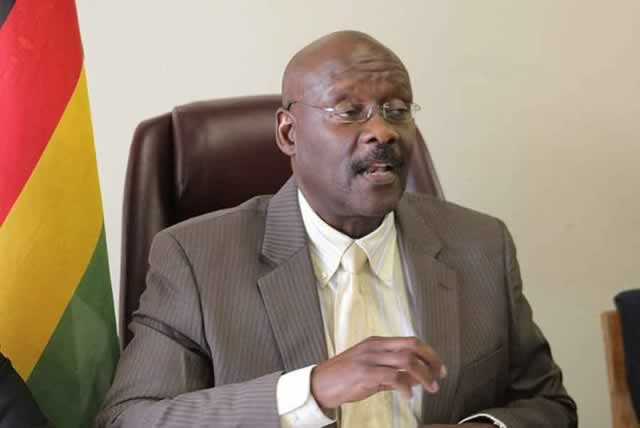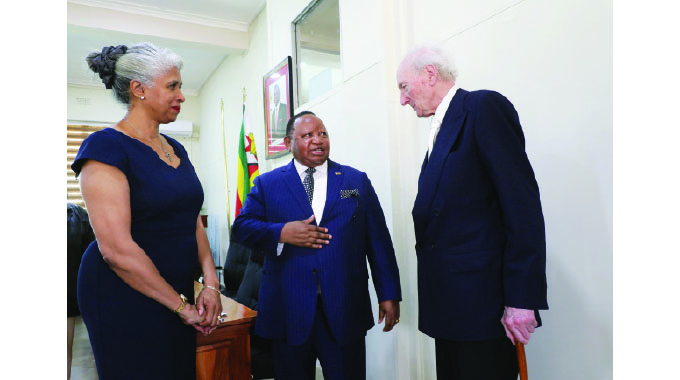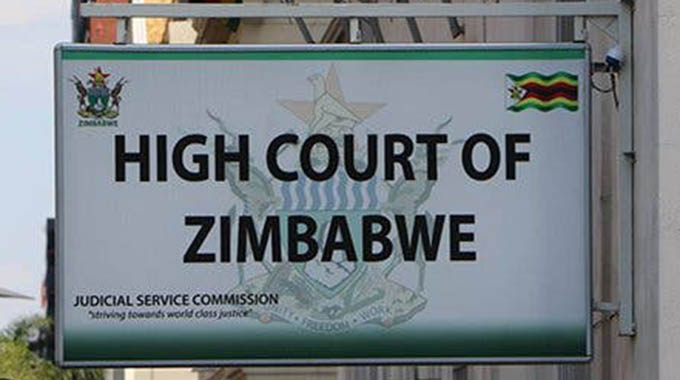95pc Harare boreholes contaminated: Minister •‘55pc residents’ hands have faecal matter’ •Not all bottled water safe


Dr Parirenyatwa
Paidamoyo Chipunza Senior Health Reporter—
NINETY-FIVE percent of boreholes in low-density suburbs like Borrowdale are contaminated, while 55 percent of people have their hands contaminated with faecal matter, Health and Child Care Minister Dr David Parirenyatwa has said.Officially launching a national clean-up campaign, also known as waste management campaign at Lusaka Vegetable Market in Highfield, Harare, yesterday, Minister Parirenyatwa said borehole water was no longer safe.
He said of the over 33 boreholes assessed in Mbare residential area, over 20 of them were contaminated. “Some think that because they stay in low-density areas, they are spared from typhoid, but because of the rains, dirt is being washed into those boreholes and as we speak, there is also flooding taking place.
“Some also think they are safe because they use borehole water, but our assessments have shown that 95 percent of all boreholes from low-density areas such as Borrowdale are also contaminated. So, if you stay in those areas just be on the watch-out,” said Dr Parirenyatwa.
He urged all those with boreholes, regardless of their social standing, to test their water to ensure its safety or treat all water for consumption at point of use.
In the same vein, Dr Parirenyatwa said not all bottled water was safe since some companies were bottling borehole water.
“What we want to ensure is that piped water is safe so that our people are also safe. We have engaged in those talks with responsible authorities and we hope tap water is safe for consumption,” he said.
Dr Parirenyatwa also called on people to adhere to general hygiene practices, especially during an outbreak to curb the further spread of diseases. He said a research carried out in Harare recently revealed that about 55 percent of people had faecal matter in their hands.
“A research was carried out swabbing people’s hands and they found out that 55 percent of those people’s hands had faecal matter, so let us wash our hands at all times,” said Dr Parirenyatwa.
He said while cases of typhoid continue to decline, Government remains alert and committed to addressing key determinants of health such as waste management, sewer reticulation, and general hygiene at marketplaces and refuse collection, among others.
He challenged council to ensure that they sustain clean-up campaigns in the whole city and urged other towns to follow suit, to avoid future outbreaks. Speaking at the same occasion, Small to Medium Enterprises Minister Sithembiso Nyoni applauded the combined effort to curb typhoid and other diarrhoeal diseases in a dignified manner.
She said SME owners or vendors were serious businesspeople who also want to operate in a clean environment. “As a Ministry, we really advocate for a decent workspace but the SMEs can’t do it on their own,” said Minister Nyoni.
She said said the Ministry of SMEs was working with different entities to ensure descent work environment for vendors. Minister Nyoni urged the national typhoid taskforce to continue with its approach to bring back sanity on a win-win basis and urged all vendors to report any misnomers to avoid casualties.
World Health Organisation representative Dr David Okello commended Zimbabwe for taking bold steps in cleaning the environment. “This is true public health. We do not fight diseases in hospitals, but we fight them in the environment that we live,” said Dr Okello.
Since the beginning of the current typhoid outbreak in December, two people have died and over 200 others have been treated of suspected typhoid. As of yesterday, four people were still hospitalised at Beatrice Infectious Disease Hospital.






Comments